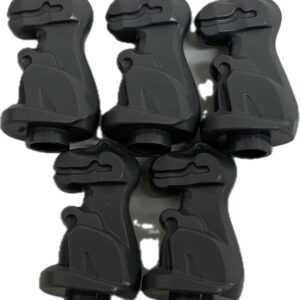“`html
What is a Flexible Spending Option?
A **Flexible Spending Option** (FSO) allows employees to set aside pre-tax dollars from their paychecks for eligible expenses. This financial strategy offers a way to save money on healthcare costs, dependent care, and other qualified expenses. By contributing to a **flexible spending option**, you can lower your taxable income, thereby increasing your take-home pay. Understanding how this option works can be a game-changer in your financial planning.
How Does a Flexible Spending Option Work?
When you enroll in a **flexible spending option**, you agree to divert a portion of your salary into an account that can be used to pay for specific out-of-pocket expenses without being taxed. There are two primary types of flexible spending accounts: healthcare FSAs and dependent care FSAs.
- Healthcare Flexible Spending Accounts (FSAs): These accounts help you cover medical expenses like copays, prescriptions, and eligible medical equipment. You can currently contribute up to $2,850 per year to a healthcare FSA.
- Dependent Care Flexible Spending Accounts (FSAs): These accounts help you pay for expenses related to childcare or eldercare while you work. The maximum contribution is $5,000 per year for single taxpayers and married couples filing jointly, and $2,500 for married individuals filing separately.
Benefits of a Flexible Spending Option
There are numerous advantages to utilizing a **flexible spending option**. Here are some of the key benefits:
- Tax Savings: By using pre-tax dollars, you effectively lower your taxable income, which can lead to significant savings throughout the year.
- Budgeting Assistance: Contributing to an FSO encourages individuals to budget more effectively. By designating funds for specific expenses, you ensure that money is available when your needs arise.
- Immediate Access to Funds: When you contribute to a healthcare FSA, you have access to the entire amount you pledged at the beginning of the plan year, even if you haven’t yet contributed that amount.
Eligibility and Enrollment
To participate in a **flexible spending option**, you must meet specific eligibility requirements set by your employer. Enrollment typically occurs during an open enrollment period, usually once a year. It’s essential to review your options thoroughly during this period.
- Check Employer Policies: Some employers may offer different limits and types of flexible spending accounts, so it’s important to be aware of what your employer provides.
- Consider Your Annual Expenses: Anticipate your healthcare and dependent care costs; this will help you determine how much to allocate to your FSO.
- Review IRS Guidelines: Familiarize yourself with IRS limits and rules to ensure your contributions and expenses are compliant.
Eligible Expenses
A **flexible spending option** can cover a wide variety of expenses. Below are some common qualified expenses:
- Doctor and dentist copays
- Prescriptions and over-the-counter medications (with a prescription)
- Medical supplies like band-aids and thermometers
- Childcare costs for children under 13, including daycare and preschool
- Care for dependents who are physically or mentally incapable of self-care
- Various therapies, such as physical therapy or chiropractic care
How to Manage Your Flexible Spending Option
Managing a **flexible spending option** efficiently can lead to smoother financial navigation when it comes to healthcare and dependent care expenses. Here are some tips to make the most of your account:
- Keep Records: Always save receipts for eligible expenses to make claims easier and ensure you can validate your claims if required.
- Track Your Spending: Regularly check your account balance and spending to avoid facing the “use-it-or-lose-it” rule that applies to many FSAs.
- Plan Wisely: Since funds are typically required to be used within the plan year, be mindful of your healthcare needs to avoid losing unused funds.
Common Myths About Flexible Spending Options
There are a number of misconceptions surrounding **flexible spending options**, and it is essential to debunk these to fully understand their value:
- Myth 1: You lose any unused funds at the end of the year.
Fact: While many FSAs operate on a “use-it-or-lose-it” basis, some employers may offer a grace period or allow a portion of funds to roll over into the next year. - Myth 2: Only employees in certain professions can use FSAs.
Fact: Any employee who is offered a **flexible spending option** by their employer may participate, regardless of their occupation. - Myth 3: You can only use FSAs for healthcare expenses.
Fact: As mentioned, you can also use dependent care FSAs for eligible childcare and caregiving expenses.
Final Thoughts
In summary, a **flexible spending option** provides invaluable benefits for managing healthcare costs and dependent care expenses. By using pre-tax dollars, you can save money, enhance your budgeting efforts, and ensure that you have funds available when critical needs arise. Understanding how to enroll and effectively manage this account is essential for maximizing its benefits. As you consider your financial options, be sure to include a FSO in your planning to take full advantage of its potential savings. For more information on related topics, check out our Animals category page.
“`




















